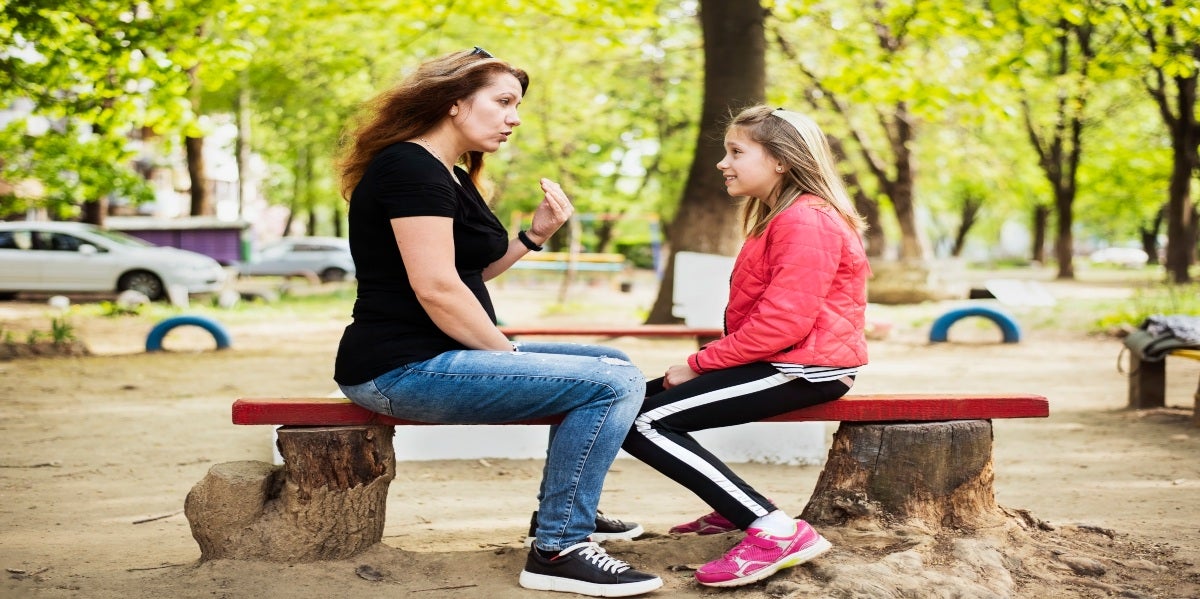13 DO's And DON'Ts When It Comes To Talking To Your Teen About '13 Reasons Why'
How to talk to your teen about bullying, sexual assault and suicide.
 Marian Fil/Shutterstock.com
Marian Fil/Shutterstock.com If you haven’t seen the new Netflix series, "13 Reasons Why", you can be certain that your teen/tween has or has been talking/texting/tweeting about it with their friends.
If you watch this series, you will be appalled by just how out of touch all of the adults are about what’s really going on in the lives of high school students.
Is this you? While the depiction of the adults in the series might not be 100 percent accurate, there is likely some truth to it.
The disconnect highlighted in the series shines a light on whether or not our teens are prepared to emotionally and tactically succeed when they leave our homes.
- By co-viewing, you can address head on any questions your teen might have.
- Share the beliefs your family holds around any of the difficult topics.
- Reinforce you as a resource to your child. Do you really want your kid to learn about these topics from other kids?
Here are the Do’s and Don’ts for watching "13 Reasons Why"
Do:
- Create a safe space for questions and discussion. These means you can’t have judgment about what’s going on in the film. If you think the topics that the 16-year-old characters are discussing in the show are silly, keep it to yourself. Your teen may not think so. If you need to let off steam, choose another adult to talk to when your teen isn’t around.
- Be present. This is not the time to multi-task with a work project, social media, or other distraction. Our days are so busy. Take this time to give your teen the attention they are craving.
- Share if you have personal experience with being bullied and how you overcame it. This can be a great conversation starter and a great door opener if your teen has been holding on to something around bullying.
- Be patient. It may take a few episodes to get through before your teen is comfortable enough to share challenges in their own life or those that they observed.
- Discuss with your co-parent. Include them in the viewing and discussion if possible.
- Stay calm. Be honest if you’re shocked by the topic, but reassure your child that you do want to discuss the issue. This can help your child feel he can talk to you about anything.
- Be happy. Make sure the first thing you say to your child is something that lets her know you’re happy that she wants to talk to you. For example: "I’m so happy that you trust me to help you with this."
- Listen to your teen. This means giving your child a chance to talk through what’s going on, without you trying to fix the situation. Often, teenagers aren’t expecting you to fix things — they just want you to listen.
- Thank you. Let your teen know you appreciate their faith in you.
Don’t:
- Position yourself as having all of the answers. First, you likely do not and you want to maintain credibility. Secondly, this is a great opportunity for your teen to see that you can succeed in life and not have all of the answers all of the time.
- Try to be your teen’s friend. You aren’t. Now more than ever, they need someone they can turn to who is an authority position.
- Be too personal. This isn’t the time to start quizzing them on things they may have done. This is all about creating the space for our open conversation and for them to bring concerns to you.
- Don’t wait too long to address any issues you aren’t willing to address in the moment. If you need a bit of time to cool down or gather your thoughts before you talk, set a time to talk later. Make sure it’s soon — don’t wait until the next day. The longer you wait, the harder it will be. If your teen has brought it to your attention, you can assume they have been thinking about the topic for some time. Seize the moment.
We have an opportunity now to effect change in the lives of our teens and our communities. Now is the time to ensure that our teens see us parents as a resource for them.
As they step out into life, we want to ensure that they are confident and well prepared to think on their own and handle the challenges that will come their way with the knowledge that we will remain available to them as an emotional support system.
Learn more about raising confident and independent young adults in Allyson’s best-selling book Please Don't Come Home. Contact her to receive a free phone consult about the teen in your life.

